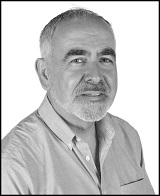 Carinthia is a fascinating corner of Austria, formally included in the new Austrian Republic in a plebiscite in 1919 and imbued with the confluence of Austrian, Slovenian, and Italian cultures. Packed with history and culture, it provided rich material for underpinning a keynote lecture for the Austrian Geriatrics and Gerontology Society conference in Villach on how geriatricians approach their own personal future with ageing.
Carinthia is a fascinating corner of Austria, formally included in the new Austrian Republic in a plebiscite in 1919 and imbued with the confluence of Austrian, Slovenian, and Italian cultures. Packed with history and culture, it provided rich material for underpinning a keynote lecture for the Austrian Geriatrics and Gerontology Society conference in Villach on how geriatricians approach their own personal future with ageing.
Ageing is a topic best approached through the Microsoft mantra of “think global, act local” at many levels, because there is an ever-present danger of considering that ageing, and its inherent vulnerabilities, is something that happens to other people. Given the continuing compression of both morbidity and mortality, it is likely that the vast majority of us will live into old age, with increasingly better levels of health than our parents and grandparents.
Yet we will also be confronted inevitably by age related disease and disability, and the challenge to geriatricians and gerontologists is to tease out and affirm the value to us all of our longevity—mindful of our vulnerability, but not allowing the discourse to be dominated by it.
My first local waypoint on ageing was the play showing during the congress in the municipal theatre in Villach: Simply Complicated, by Thomas Bernhard, one of Austria’s greatest dramatists. Centring around an old actor who is struggling with ageing and the outside world, Bernhard neatly catches the challenge that so many people view ageing, the most complex stage of our lives, in simplistic terms: “You’ll see that everything is complicated in this world. Everything looks easy, but it is very complicated. Everything is complicated.”
This is a good springboard for moving on to Paracelsus, the great German physician, whose family home is one of the highlights of a visit to Villach. Paracelsus is credited with, among many other innovations, unpicking the tenacious attachment of the medical establishment to Galenic theories of illnesses, and in particular to ageing. This too is a call to us to reject miserabilist tropes on ageing, and to incorporate simultaneous growth and loss of later life without diminishing our personhood.
The good news that the incidence of dementia is in decline, a happy phenomenon associated to a great extent with increased levels of education, resonated with the fine monument to Empress Maria Theresia in nearby Klagenfurt, whose “Schulpflicht” in 1774 was one of the first systems of compulsory education in the world, over 100 years ahead of the United Kingdom.
However, the welcome reduction in incidence and enormous resources dedicated to biological treatments of dementia can distract us from the reality of helping people with dementia (and those of us who will develop the syndrome) in the present moment.
Klagenfurt was also the birthplace of Robert Musil, whose The Man Without Qualities is one of the great modernist classics of Austrian and world literature. Its central character, Ulrich, seeks a sense of life and reality but fails to find it, becoming “a man without qualities,” depending on the outer world to form his character. His struggle is a metaphor for our challenge to avoid characterising life with dementia in terms of life “without qualities,” and to be mindful that the outer world we offer to those with dementia is supportive of their search for meaningfulness.
Reaching further into the broader Germanophone literature provides prompts into how we might visualise the ongoing richness of life with cognitive impairment. We will have to wait until January 2017 for the English translation of the wonderful The Old King in His Exile by Arno Geiger, but particularly delightful insights are provided in Small World by the prolific Swiss author Martin Suter.
Reframing our discourse on ageing to include our own future selves will require some reflection and rephrasing of our parameters, objectives, and terminology: for example, substituting “older people” for “elderly,” “optimal ageing” for “successful ageing,” and “burdensome aspects of care” for “carer burden.”
In this radical questioning we can draw inspiration from another great Austrian poet, Rainer Maria Rilke: “Live the questions now. Perhaps then, someday far in the future, you will gradually, without even noticing it, live your way into the answer.”
Desmond O’Neill is a geriatrician and an educator on the TCD Massive Open Online Course on ageing.
